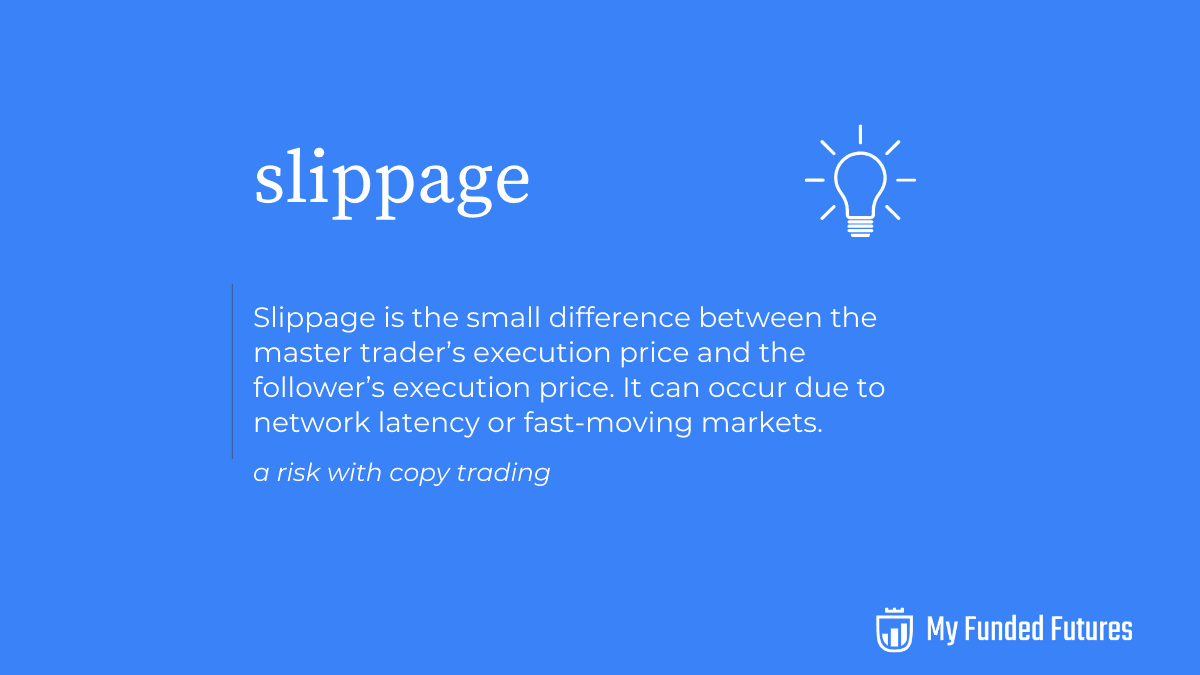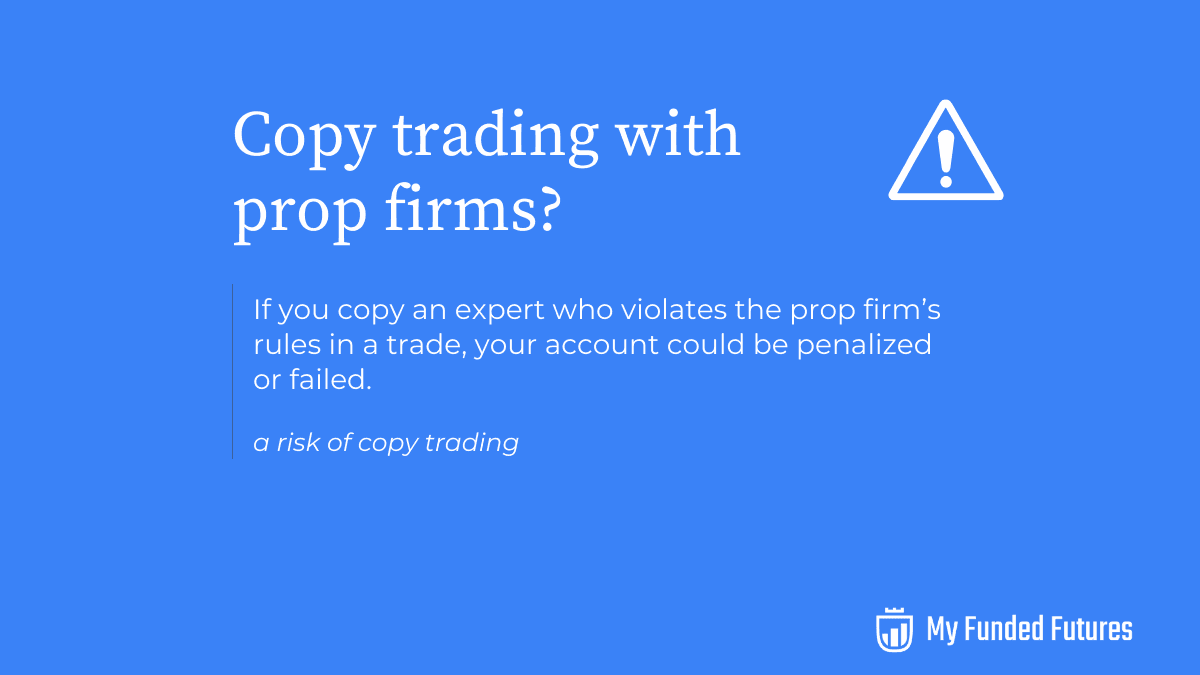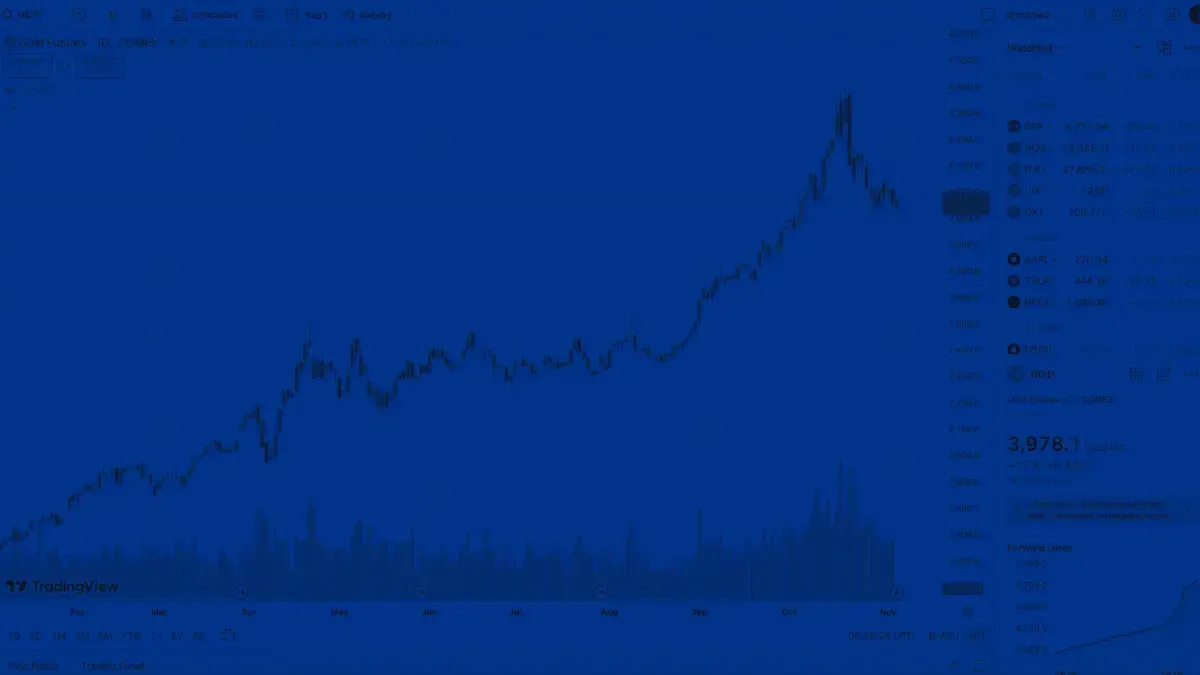Copy trading has brought about a fundamental change in how people approach financial markets, with billions of dollars now flowing in annually through this route.
This sudden surge in popularity makes sense. Many busy professionals want market exposure and emulate proven strategies, but lack the time or background to trade full-time.
Copying professional traders allows people that are just starting out to cut short a steep learning curve and get to a point of financial freedom where they are able to invest more in up-skilling.
However, copy trading isn't a magic wand. If it was, much of the trading world would be obsolete! There are very unique challenges and risks.
Different platforms serve distinct purposes. Social trading networks are popular with retail traders. Regulatory frameworks vary across regions, and some trading environments -- particularly futures proprietary trading firms -- maintain strict policies about using collaborative or automated strategies.
What is Copy Trading?
Copy trading is an automated investment strategy that allows your trading account to mirror the trades of another, more experienced trader in real time. In practice, it means if the expert (often called the signal provider) opens or closes a position, your account automatically does the same.
Think of it like hitching your wagon to a racehorse --- you go wherever they go, for better or worse.
This differs from traditional trading signals services. With signals, you only receive trade ideas or alerts, which you must execute manually.
Copy trading, by contrast, handles execution for you: it's hands-free once you've set it up. The copy trading platform acts as a bridge connecting your account to the expert's account. Every trade the expert makes is duplicated in your account in the blink of an eye, and typically scaled to your chosen investment size.
How Does Copy Trading Work?
Copy trading relies on programming in the background that links your account with the expert trader's account.

-
Platform Connection: You sign up on a copy trading platform or broker and select an expert trader (or multiple traders) to follow. The platform connects your account to theirs behind the scenes. For instance, on a social trading platform like eToro, you click "Copy" on a trader's profile; on some other platform, you might subscribe to a signal; on a trade copier tool, you designate a master and follower account.
-
Trade Mirroring: Once linked, any time the expert executes a trade, the system automatically replicates it in your account. If they buy 100 shares of Apple, your account buys Apple too. If they short EUR/USD with 2% of their balance, your account does likewise with 2% of your balance (this is called proportional copying).
-
Automation & Timing: The replication is typically instantaneous or very fast (often within milliseconds). Modern trade copier technology ensures minimal delay, so you essentially get the same entry price as the master trader, barring slight slippage due to market movement or latency.
-
Scaling & Risk Control: You have control over how much to allocate and can usually set risk parameters. For instance, you might choose to copy all trades at 50% scale (so if the master risks 2% of their account, you risk 1% of yours). Good platforms also let you cap the maximum trade size or stop copying if your losses exceed a threshold. This proportional copying and risk setting is crucial so that a professional with a $100k account doesn't bankrupt your $1k account by taking a huge position.
-
Stop/Start Flexibility: You're not married to any trader. You can stop copying at any time, close trades manually if needed, or switch to different experts. You maintain ultimate control -- the platform won't trap you into unwanted trades beyond what you've agreed to copy. It's automation with an off-switch.

Types of Copy Trading Platforms
Not all copy trading is created equal. Broadly, copy trading systems fall into a few categories:
- Social Trading Platforms: These are user-friendly networks that combine a trading platform with a social media-like experience.
Traders on these platforms have public profiles, news feeds, and you can interact while also copying trades.
Social platforms often cover multiple asset classes like stocks, forex and cryptocurrency and are great for beginners due to their intuitive interfaces and educational content.
If you're just starting out, a social trading network can feel relatively welcoming; you learn better by observing and engaging with a community.
- Professional Trade Copier Software: These are advanced tools used by experienced traders, account managers, or those running multiple accounts (even across different brokers).
They integrate with popular trading terminals NinjaTrader rather than having their own brokerage.These solutions offer sophisticated risk management settings, cross-platform compatibility, and ultra-fast execution suitable for high-volume or high-frequency trading.
They are typically less about community and more focused on technical performance, making them more suitable for intermediate to advanced traders.
- Cryptocurrency-focused Platforms: These specialize in crypto markets, which trade 24/7 and can be very volatile. Exchanges like Bybit and Binance have introduced copy trading features where you can follow crypto "star traders."
There are also third-party crypto trade copiers and bot platforms that connect to your exchange accounts via API.
If you have a major appetite for risk and are only interested in digital assets, these are the platforms to look at. Keep in mind the crypto world has its own risks.
Top Copy Trading Platforms in 2025
After testing and comparing dozens of services, these are the top copy trading platforms to consider in 2025. Each caters to slightly different audiences and use cases.
eToro CopyTrader — Best for Beginners & Social Trading
eToro is often the first name that comes up for copy trading, and for good reason. The company pioneered social trading over a decade ago and has since grown to be a publicly-traded company with over 40 million users worldwide.
Key eToro Features:
-
Beginner-Friendly User Experience: Beginner users typically find eToro's platform welcoming and easy-to-use. There is a news feed styled after ones from familiar social media feeds like Facebook and X, trader profiles with stats and charts and even a virtual practice account to test the waters.
-
Multi-Asset Support: Copy trade across forex, stocks, indices, ETFs, and cryptocurrencies all on one platform.
-
Low Minimums: You can start copying a trader with as little as $200. The platform also offers a $100,000 demo account to experiment risk-free.
-
Copy Multiple Traders: eToro lets you copy up 100 traders at the same time, with a high-enough limit of maximum $2 million limit on following a single trader.
-
Regulation & Safety: eToro is well regulated globally; by FCA in the UK, CySEC in Europe and ASIC in Australia.
Limitations:
-
Higher spreads compared to specialized brokers.
-
Limited U.S. coverage --- New York, Nevada, Hawaii, Puerto Rico and the US Virgin Islands.
-
Closed ecosystem --- can't connect external brokers or custom assets.
-
"Herd mentality" risks as popular traders attract mass copycat behavior.
2. ZuluTrade -- Best for Multi-Broker Flexibility
ZuluTrade acts as a broker-agnostic copy trading hub, connecting to over 100 brokers worldwide. It's ideal if you already have a preferred broker but want access to a global marketplace of traders.
Key Features:
-
Massive Trader Network: Over 10,000+ providers across the world.
-
Powerful Filtering: Screen by performance, drawdown, strategy type, and more.
-
ZuluGuard Safety: Automatically unfollows traders if they deviate from set risk parameters.
-
Broker Choice: Use your existing broker or open a new account with one of their integrated partners.
Limitations:
-
Complexity for beginners --- requires managing both a broker account and ZuluTrade account.
-
Execution quality depends on your broker's liquidity and pricing.
-
U.S. users have limited options due to regulatory restrictions.
Costs:
No direct subscription fees; costs are built into broker spreads or commission structures.
3. TradeSyncer -- Best for Professional Copy Trading & Prop Firms
TradeSyncer is built for serious traders, account managers, and prop firm environments. Unlike public social trading networks, it's a private trade-copying infrastructure designed for speed, compliance, and scale.
Key Features:
-
Ultra-Low Latency: Cloud-hosted infrastructure ensures lightning-fast trade replication --- essential for scalping and high-frequency strategies.
-
Multi-Platform Support: Works with NinjaTrader, TradingView, Tradovate, and Rithmic and more.
-
Custom Risk Controls: Reverse trades, adjust lot sizes, and apply firm-specific risk parameters.
-
Prop Firm Compatibility: Compliant setup that mimics native trading activity, making it ideal for traders managing multiple funded accounts.
Why It Stands Out:
TradeSyncer isn't a social marketplace --- it's institutional-grade tech for copying and scaling strategies securely. It's particularly valuable for prop traders and firms who need speed, privacy, and reliability beyond what consumer platforms offer.
4. MetaTrader Signals & Trade Copiers -- Best for Custom Setups
For advanced users, MT4/MT5 remain the backbone of the copy trading ecosystem.
Options include:
-
MQL5 Signals Marketplace: Subscribe directly to top-ranked traders within MT4/MT5.
-
Broker-Level Mirroring: Many brokers offer master/slave account setups.
-
External Copiers: Software like Local Trade Copier or Duplikium lets you run complex setups across multiple brokers.
Strengths:
-
Extreme customization: reverse trades, proportional allocation, or risk caps.
-
Cost-efficient since trades execute directly through brokers with no added spreads.
-
Supports unlimited accounts --- ideal for managing family or investor portfolios.
Limitations:
-
Requires technical setup and potentially a VPS to run 24/7.
-
No built-in community or discovery tools --- you must source signal providers yourself.
5. Binance & Bybit -- Best for Crypto-Only Copy Trading
If your focus is crypto, major exchanges now include native copy trading features.
Highlights:
-
Integrated Execution: Trades happen directly on exchange order books --- no third-party middlemen.
-
Futures & Spot Support: Copy advanced strategies using leverage or spot markets.
-
Transparent Metrics: View ROI, drawdowns, and active positions in real time.
-
Low Fees: No extra subscription fees; standard trading fees apply.
Binance: Largest selection of crypto assets and pairs.
Bybit: Known for its competitive leaderboards and active trader community.
Limitations:
-
Crypto only.
-
Volatility can lead to large, rapid drawdowns.
-
Access may be restricted in certain jurisdictions, like for U.S. residents.
Do Prop Firms Support Copy Trading?
It is difficult to secure funding to trade futures, forex or cryptocurrencies from prop firms as most forbid copy trading in any form, because they want to evaluate your individual skill, not someone else's.

If you are in a prop firm evaluation or have a funded account, always check that firm's rules before using copy trading. Even if allowed, consider the impact: if you copy someone and that person trades in a way that violates the prop firm's rules (like holding over news or using too high leverage), your account could be penalized or failed. Prop firms like to see your trading behavior, so use copying wisely, if at all, in those contexts.
MyFundedFutures (MFFU), being in favor of giving traders flexibility, allows it with conditions rather than outright banning copy trading.
Ready to dive in?
Explore our challenge accounts, pick the one that fits you best, and start your journey to getting funded.
Explore AccountsGeneral Risk Disclaimer: Trading and investing involves risk, including the possible loss of principal. Copy trading does not guarantee profits, and past performance of a trader or strategy does not ensure future results.
Platform Availability Disclaimer (U.S. Restrictions): Some platforms mentioned, including Binance and Bybit, are not available to U.S. residents. eToro services are subject to state-level restrictions (e.g., not available in New York, Nevada, Hawaii, Puerto Rico, and the U.S. Virgin Islands). Availability varies by jurisdiction.
CTA / U.S. Regulatory Disclaimer: In the United States, certain copy trading and signal services may be considered Commodity Trading Advisor (CTA) activity and are subject to CFTC and NFA regulation. Access to such services may be limited unless the provider is properly registered.”
Prop Firm Disclaimer: MyFundedFutures (MFFU) is not a registered broker, futures commission merchant, or introducing broker. Any allowance of copy trading applies only within its internal evaluation framework and does not extend to regulated live trading accounts.
This material is provided for educational purposes only and should not be relied upon as trading, investment, tax, or legal advice. All participation in MyFundedFutures (MFFU) programs is conducted in a simulated environment only; no actual futures trading takes place. Performance in simulated accounts is not indicative of future results, and there is no guarantee of profits or success. Fewer than 1% of participants progress to a live-capital stage with an affiliated proprietary trading firm. Participation is at all times subject to the Simulated Trader Agreement and program rules.
Frequently Asked Questions
Rate this article
Related Posts
Read our most popular posts
Which Prop Firms Offer Daily Payouts and How Do They Work?
Daily payout prop firms let traders withdraw profits far more frequently than traditional models, sometimes even from the very first funded day. Instead of waiting weeks for a payout cycle, traders can request withdrawals every day, subject to rules on drawdown, buffers, and minimum amounts. This guide explains how daily payout structures work, which futures prop firms are known for fast withdrawals, what to watch out for in the fine print, and how MyFundedFutures’ Rapid plan fits into this newer payout landscape.
Beginner's Guide to Trading Corn Futures on CBOT
Corn futures offer accessible margin, predictable seasonal patterns, and price drivers you can research and plan around. Here's how to trade the CBOT corn contract, from understanding tick values to building setups around USDA reports and weather volatility.
5 Best Prop Firms With TradingView Integration
TradingView's powerful charting tools and real-time data make it a favorite among futures traders, but not every prop firm lets you trade directly from your charts. We've identified five firms that offer true TradingView integration, making it easy to analyze, execute, and scale without switching platforms.


